Black Mulch Gardens: The Ultimate Guide To Using Black Mulch In Your Garden
Introduction
Black mulch is a popular choice for gardeners because it is attractive, effective, and relatively inexpensive. It can help to suppress weeds, conserve moisture, and improve the overall health of your plants.
In this blog post, we will discuss the benefits of using black mulch in your garden, as well as how to choose the right type and thickness of mulch for your needs. We will also provide some tips for maintaining your black mulch garden.
Benefits of Using Black Mulch
There are many benefits to using black mulch in your garden. Here are just a few:
- Suppresses weeds. Black mulch creates a physical barrier that prevents weeds from germinating. This can save you a lot of time and effort in weeding your garden.
- Conserves moisture. Black mulch helps to retain moisture in the soil, which can help your plants to stay healthy and productive.
- Improves drainage. Black mulch can help to improve drainage in clay soils. This is because the mulch helps to break up the soil and create air pockets.
- Attracts beneficial insects. Black mulch can attract beneficial insects, such as ladybugs and lacewings. These insects help to control pests in your garden.
- Improves the appearance of your garden. Black mulch can add a touch of elegance to your garden. It can also help to define the edges of your flower beds and borders.
Choosing the Right Type of Black Mulch
There are two main types of black mulch:
- Dyed black mulch. This type of mulch is made from natural materials, such as wood chips or bark, that have been dyed black. Dyed black mulch is typically more expensive than other types of black mulch, but it will last longer.
- Natural black mulch. This type of mulch is made from materials that are naturally black, such as black walnut shells or cocoa hulls. Natural black mulch is typically less expensive than dyed black mulch, but it may not last as long.
The thickness of your black mulch will depend on the type of plants you are growing and the climate in your area. In general, you should aim for a thickness of 2-3 inches.
Maintaining Your Black Mulch Garden
Black mulch is relatively low-maintenance. However, there are a few things you can do to keep your black mulch looking its best:
- Remove any weeds that do manage to grow through the mulch.
- Reapply mulch as needed. Mulch will eventually decompose, so you will need to reapply it every few years.
- Water your plants regularly, especially during hot, dry weather. This will help to keep the mulch moist and prevent it from drying out.
Conclusion
Black mulch is a great way to improve the appearance, health, and productivity of your garden. It is easy to use and maintain, and it offers a variety of benefits. If you are looking for a way to improve your garden, black mulch is a great option.
Black mulch is a great way to improve your garden. It can help to suppress weeds, retain moisture, and keep your plants healthy. If you're interested in learning more about black mulch gardens, I recommend visiting Home Gardening. This website has a wealth of information on the benefits of black mulch, as well as tips on how to use it in your own garden.
FAQ of black mulch garden
- What is black mulch?
Black mulch is a type of mulch that is made from carbon dust. It is a dark, rich color that can help to improve the appearance of your garden. Black mulch also has a number of benefits for your plants, including: * It helps to retain moisture in the soil. * It helps to suppress weeds. * It helps to improve soil aeration. * It helps to protect the soil from erosion.
- Why use black mulch in my garden?
There are a number of reasons why you might want to use black mulch in your garden. Here are a few of the most common reasons: * To improve the appearance of your garden. * To retain moisture in the soil. * To suppress weeds. * To improve soil aeration. * To protect the soil from erosion.
- What are the benefits of using black mulch?
As mentioned above, black mulch has a number of benefits for your plants and your garden. Here are some of the most important benefits: * Retains moisture: Black mulch helps to retain moisture in the soil, which can help your plants to stay healthy and productive. * Suppresses weeds: Black mulch can help to suppress weeds by blocking out sunlight. This can save you time and effort in weeding your garden. * Improves soil aeration: Black mulch can help to improve soil aeration by allowing air to circulate through the soil. This can help to promote healthy root growth. * Protects the soil from erosion: Black mulch can help to protect the soil from erosion by holding it in place. This can be especially important in areas with heavy rainfall or wind.
- How to use black mulch in my garden?
When using black mulch in your garden, it is important to follow a few simple guidelines. Here are a few tips: * Apply the mulch in a layer that is 2-3 inches thick. * Extend the mulch 6-8 inches beyond the drip line of your plants. * Rake the mulch smooth to prevent it from matting down. * Reapply the mulch as needed throughout the season.
- Is black mulch safe for my plants?
Yes, black mulch is safe for your plants. In fact, it can be beneficial for their health. However, it is important to use the right type of black mulch. Some types of black mulch, such as rubber mulch, can contain harmful chemicals. It is important to choose a type of black mulch that is specifically designed for use in gardens.
- What are the drawbacks of using black mulch?
There are a few potential drawbacks to using black mulch. Here are a few of the most common drawbacks: * Black mulch can heat up the soil, which can be harmful to some plants. * Black mulch can make it difficult to see weeds, which can lead to problems if the weeds are not controlled. * Black mulch can be unsightly in some settings.
Image of black mulch garden
10 different images of black mulch garden that are free to use:
- A close-up of black mulch around a young tree. The mulch helps to retain moisture and suppress weeds, creating a healthy environment for the tree to grow.
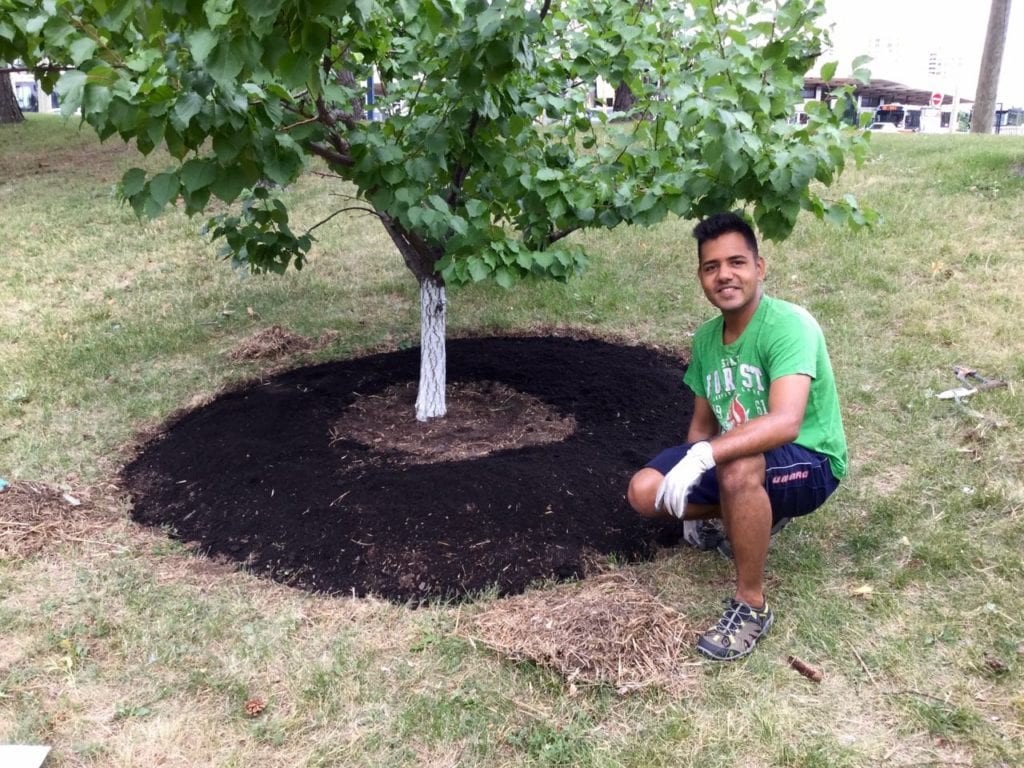
- A wide shot of a garden bed with black mulch. The mulch is evenly spread around the plants, helping to keep the soil cool and moist.
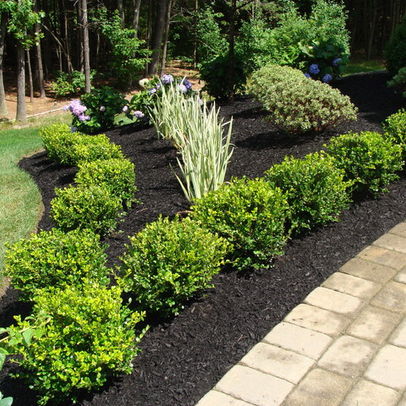
- A garden path lined with black mulch. The mulch helps to define the path and prevent weeds from growing.

- A border of black mulch around a flower bed. The mulch helps to keep the flowers tidy and free of weeds.
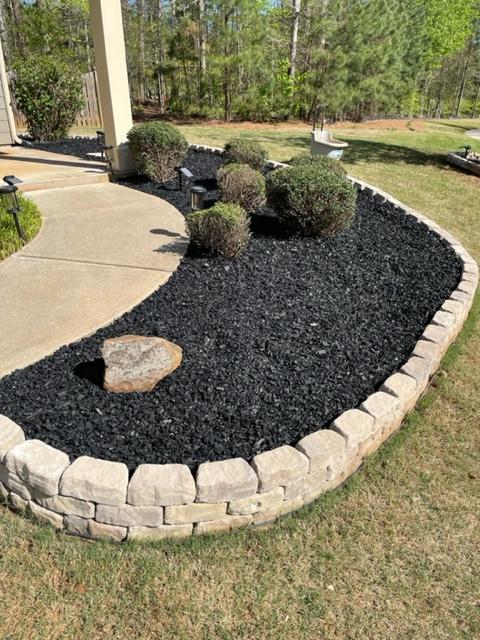
- A vegetable garden with black mulch between the rows. The mulch helps to keep the soil moist and warm, and it also helps to suppress weeds.
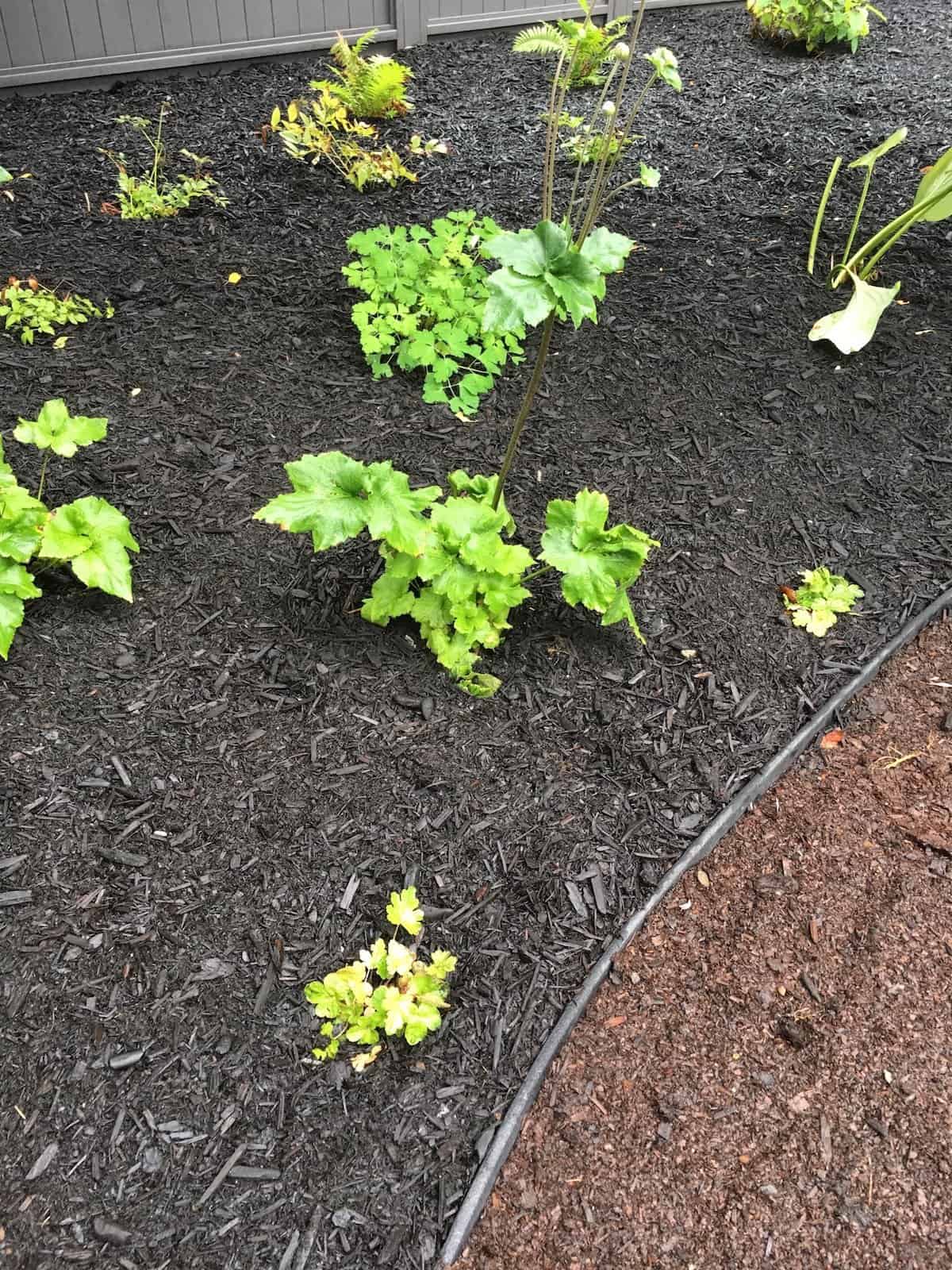
- A berry patch with black mulch around the plants. The mulch helps to keep the berries clean and free of pests.
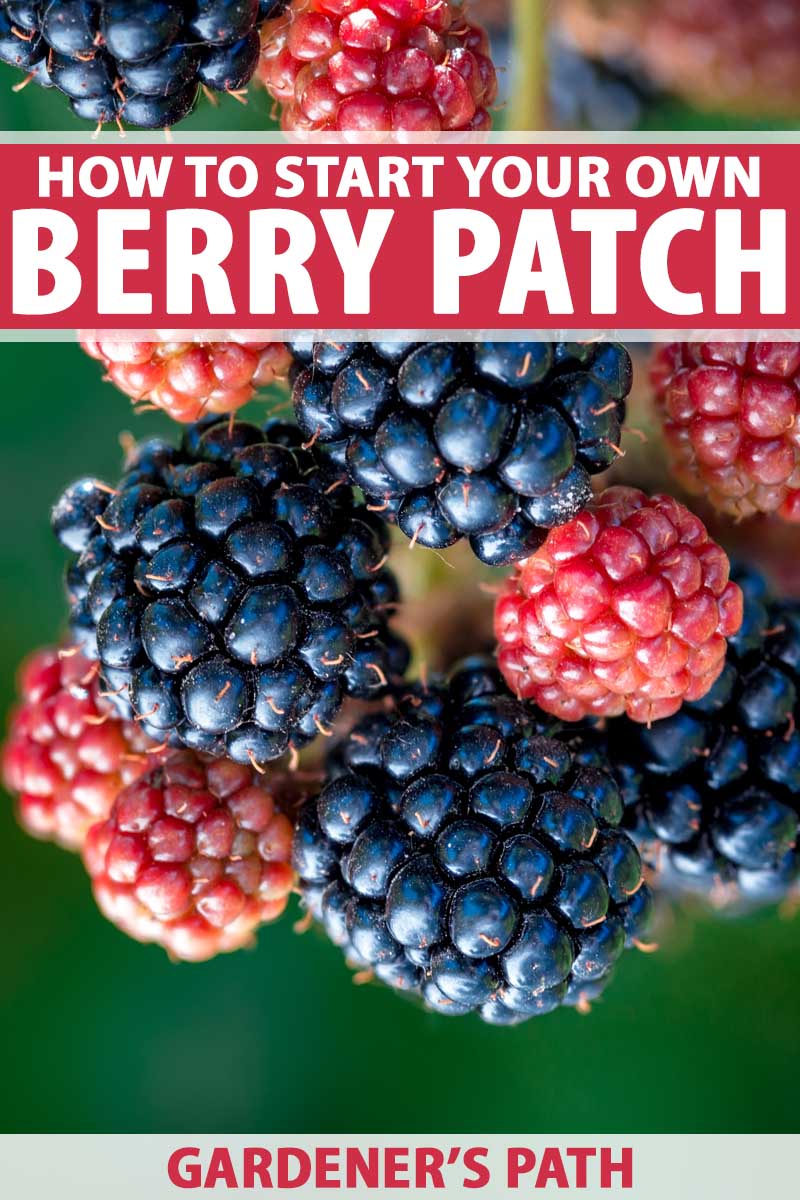
- A rose garden with black mulch around the bushes. The mulch helps to keep the roses healthy and free of weeds.
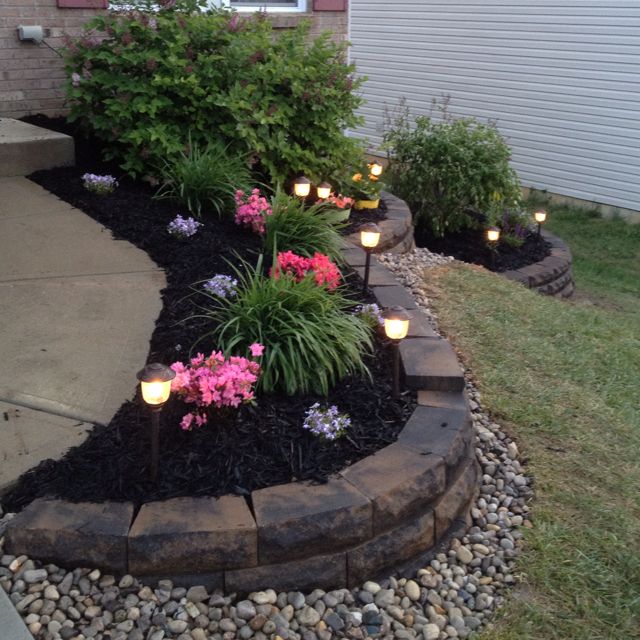
- A herb garden with black mulch between the plants. The mulch helps to keep the herbs healthy and free of weeds.

- A bonsai tree with black mulch around the pot. The mulch helps to keep the soil moist and prevent weeds from growing in the pot.

- A terrarium with black mulch covering the bottom. The mulch helps to keep the soil in the terrarium moist and free of pests.
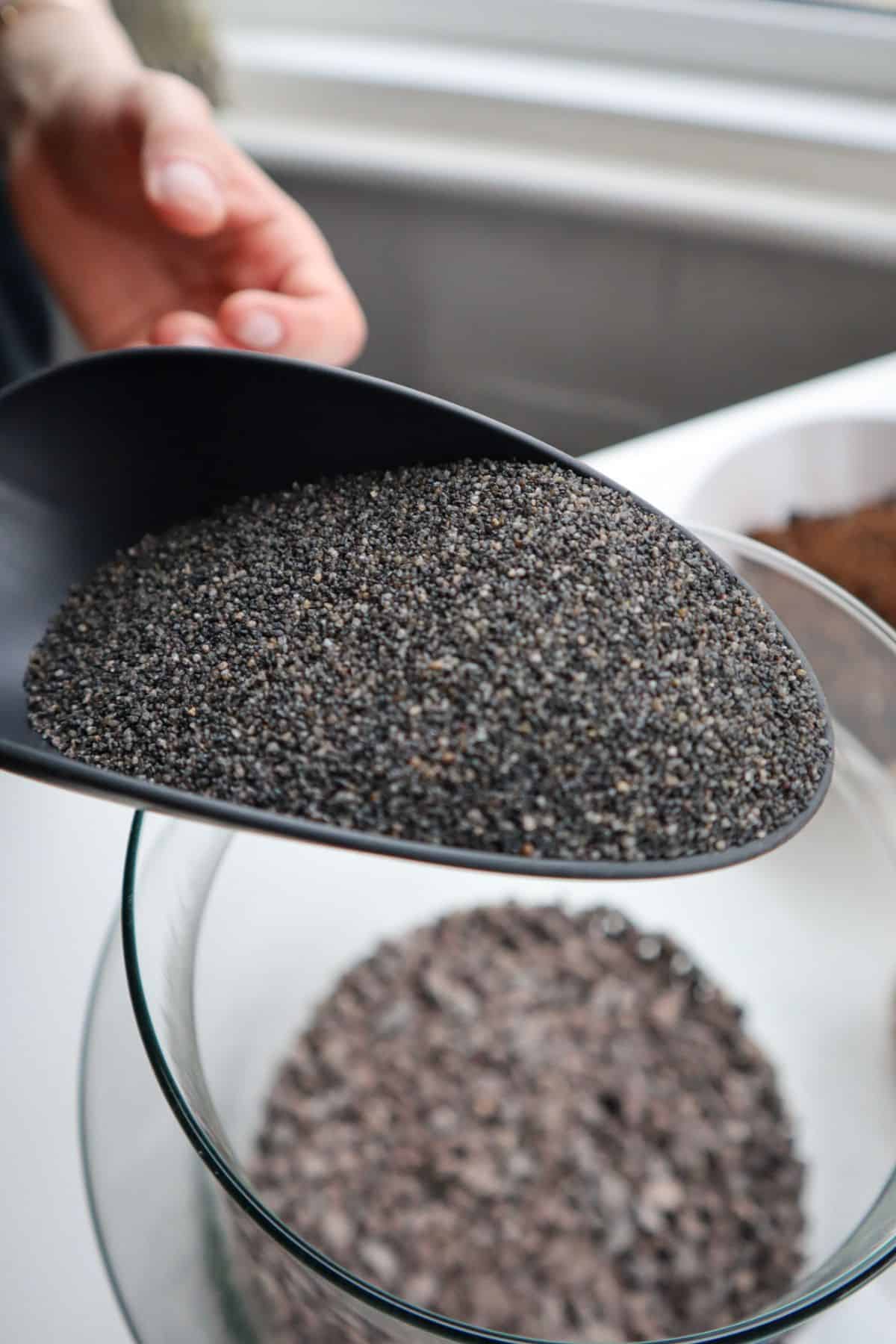
Post a Comment for "Black Mulch Gardens: The Ultimate Guide To Using Black Mulch In Your Garden"